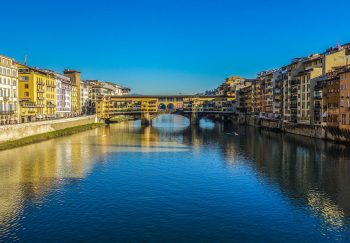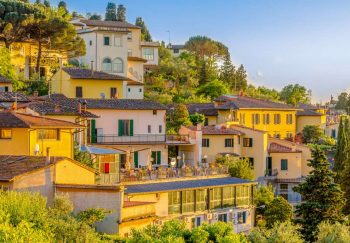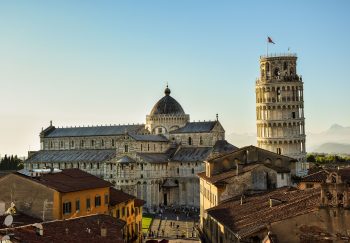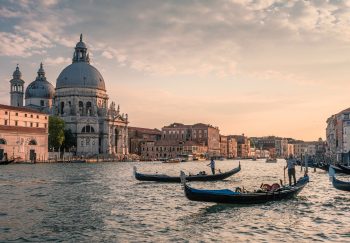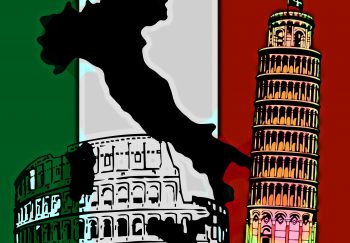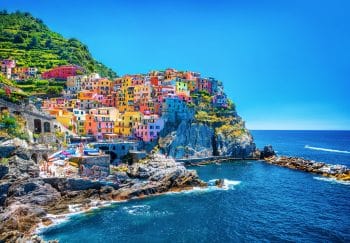This month’s theme for the Italy Roundtable is HOME. This is likely due to the fact that this is the time of year when many people return home for the holidays to spend quality time with their families.
I will be doing the same, and I wish you all a safe and joyful holiday season. But this month, I am thinking about people who were in such dire circumstances that they had to leave the only place they knew.
International Committee of the Red Cross: Syria Crisis Appeal
It is the core of Italian identity that the ideas of home and are important. Italians will often ask where you are from upon first meeting you. However, they may not get to know what your profession is. Italians learn more about each other by knowing where you are from and what regions they come from.
It must be something significant to cause millions of Italians, who have lived in their homeland for over a century, to flee their homes.
The Italian Diaspora
Giuseppe Garibaldi can be found all over Italy.
His name is engraved on buildings, streets and squares throughout the country. He is widely regarded as one of the key figures in the struggle for Italian unification in 19th century. This fight pushed us towards the Italy we now know. Vittorio Emanuele II is also a prominent figure in Italian history. His name graces a beautiful shopping arcade in Milan as well as a huge monument in Rome.
It seems that the Italian unification is a monument, as well as those who fought for it. Yet, the history of unification and its legacy is complicated. It was the catalyst for the creation of the Italian Diaspora, which is the subject of this article.
After unification in 1861, the first significant migration of Italians to the diaspora was initiated. Between that time and 1900, seven million Italians fled their homes. Gritty poverty was the main reason for mass exodus, especially for farmers who lost their land due to redistribution after unification.
According to some sources, the second wave of the Italian Diaspora occurred between 1900 and 1914. I don’t know why 1861-1914 was split into two parts. In this period, nine million more Italians fled to other countries. Emigration was slowed by the outbreak of World War I, but it picked up again after World War I. The fascist government in Italy made laws to prevent Italians leaving.
From just after World War II ended to around the 1970s, the third wave of mass immigration occurred. Today, estimates suggest that around 30 million Italians have fled Italy between 1861 and 1985.
The majority of people who left Italy were from the South (including Sicily), which was disproportionately affected by the post-unification economic system. However, during the first wave of migrations, the majority of the emigrants came from the North. Even so, if you come across someone of Italian descent who was born outside Italy, chances are that their family connections with the south are strong. 84% of American Italians are from Sicily and southern Italy. According to 2013 statistics, 5.4% of Americans are Italian Americans. This makes them the seventh-largest ethnicity in the United States.
Tracing Your Italian Roots
Italian immigrants in Sao Paulo, circa 1890 (Fundacao Patrimonio da Energia de Sao Paulo – Memorial do Imigrante)
People of Italian descent can be found all over the globe, as is the case for any culture subject to mass migration. Italy has a declining birthrate over the years and is among the countries that allow dual citizenship. This means that it is very popular to do genealogy research and trace one’s family back to Italy. It also encourages its descendants ” come back.”
You can conduct some genealogy research online if you are lucky enough to have Italian roots. You can search for “Italian genealogy research” to find many websites that offer tips and assistance in finding your Italian ancestors. It is much easier to find your ancestors if you have names and dates.
Two companies owned by my friends can help you learn more about your Italian family history. They can also put together a “heritage trip” that will allow you to visit your ancestral towns and, if possible, meet your relatives. ItalyMONDO! It works for the entire country, while My Bella Vita Travel is focused on the southern part of Italy (from where the majority of the emigrants fled).
If you’re persistent, you may even be able get your own Italian passport. I’m very jealous.
Your Italian Home
It’s not obvious that I am not Italian. I enjoy hearing about people of Italian heritage going “home” to see their grandparents, walk the streets, and even meet distant cousins with striking resemblances to your parents. It’s a lot of fun stuff and I recommend it highly.
What about those who consider Italy not to be their home? Do not worry, friends. There’s still room for you.
It’s a wonderful experience to travel to a new place and find that I feel more relaxed or breathe easier than I thought. It’s that feeling when you walk into someone’s home and know exactly what cupboard contains flour or frying pans. It doesn’t have to, but it feels like it does.
This has been my experience in Italy more times than I can remember, and the Italians have played a major role in that. , and you will be complimented like a fluent speaker. You might be rewarded by a free or two samples of the chef’s food. You will also be welcomed into the country by being kind, friendly, and engaged.
It has been a long time since I felt like a member of a long-lost family. For that, I will forever be grateful to the Italians.
Italy Roundtable: Other Voices
It’s a bit of an old home week at Roundtable, isn’t it? Follow me to each of the links and leave comments. Please share your posts with friends and join us next month for another topic on Italy Blogging Roundtable!
- ArtTrav
- At Home in Tuscany –
- Bleeding Espresso Christmas in Calabria: Home to the Holidays
- Brigolante HTML3_ HTML4_ HTML5_ HTML5_ HTML6_ HTML7_ HTML8_ HTML9_ HTML10_ HTML9_ HTML3_ HTML3_ HTML5_ HTML4_ HTML5_ HTML5_ HTML5_ HTML5_ HTML6_ HTML7_ HTML8_ HTML3_ HTML5_ HTML3_ HTML4_ HTML5_ HTML5_ HTML3_ HTML5_
- Ciao Amalfi – Looking for Home on the Amalfi Coast
- Driving like a Maniac
- Girl from Florence
- Italofile
Are we connected?
Are you LIKING us on Facebook? Are you following our Twitter? We’re very friendly, so please drop by to say hello. We are always open to suggestions for future topics for the Italy Blogger Roundtable. Drop us a message on Facebook, Twitter, or comment on any of our posts.
